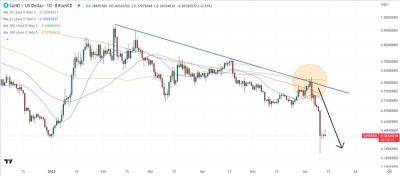Money20/20: MiCA, the regulation to rule them all
Sacheendran opened his session by reiterating the importance of regulating crypto assets, technology governance and ensuring that players in this space can provide regulators with a sense of assurance, “they begin to listen, and they understand the technology.”
While registrations for anti-money laundering were in place, there is no clear-cut regulation. Sacheendran said that “Registration was not regulation. Registration was important for all types of businesses, all types of tech entities, but for crypto asset players, it was important for the regulators to understand the activity that they were doing, the nuances and the risks of the activities that were being conducted.”
He questioned how the industry can move ahead with regulating crypto asset players in the same way that traditional banks and the rest of the financial services sector is being regulated. Sacheendran explained that while some crypto laws were passed in certain jurisdictions in particular countries, there was no regional or global standard and organisations had to pick and choose where they wanted to settle.
MiCA, as Sacheendran said, is the “regulation to rule them all. This is now a legislation in place where you have little room for national divergence, more clarity on how it should be going down the road and more collaboration from the regulators.”
MiCA will allow passporting and providers will be able to operate across the EU, regulating the taxonomy of crypto assets and clarifying what stablecoins, NFTs and other entities across the DeFi landscape can do.
“Whatever activity you do in the crypto asset space, you're going to be regulated. It’s not going to be top heavy. I want to be prescriptive across the board for every single crypto asset
Read more on finextra.com

 finextra.com
finextra.com


















